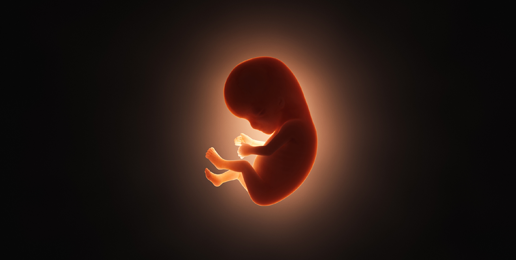
Written by Stephen P. Hayford, Esq.
Pro-life advocates across the United States should be heartened by the landmark court decision issued on February 16, 2024. In LePage v. Center for Reproductive Medicine, the Supreme Court of Alabama ruled that frozen embryos are recognized as children for purposes of Alabama’s Wrongful Death of a Minor Act.
The LePage court confronted a tragic situation that arose at a fertility clinic in December 2020. According to the court, a hospital patient walked into the fertility clinic and removed several embryos from a freezer. The patient accidentally dropped the embryos on the floor, and they died.
The three sets of parents of the deceased embryos sued both the clinic and the nearby hospital whose patient had caused the deaths of the embryos. A trial court dismissed the plaintiffs’ cases, ruling that the Wrongful Death of a Minor Act did not allow for claims based on the deaths of frozen embryos and that frozen embryos should be accorded the legal status of property. The plaintiffs appealed.
The Supreme Court of Alabama reversed the trial court’s decision. The court noted that prior decisions established that the Wrongful Death of a Minor Act applied to unborn children. The court held that the law did not exclude “extrauterine children—that is, unborn children who are located outside of a biological uterus at the time they are killed”—from its protections. The court rejected the argument that frozen embryos should be considered to be property.
In a concurring opinion, Chief Justice Tom Parker argued that
“the theologically based view of the sanctity of life adopted by the People of Alabama encompasses the following: (1) God made every person in His image; (2) each person therefore has a value that far exceeds the ability of human beings to calculate; and (3) human life cannot be wrongfully destroyed without incurring the wrath of a holy God, who views the destruction of His image as an affront to himself.”
Some pro-life voices have praised the LePage decision. “Each person, from the tiniest embryo to an elder nearing the end of his life, has incalculable value that deserves and is guaranteed legal protection,” Lila Rose of Live Action said. “The Alabama Supreme Court decision should be applauded and used as a model of honest and prudential jurisprudence nationwide.”
Josh Craddock, an affiliated scholar with the James Wilson Institute, commented that the decision “recognizes a basic moral truth that’s written on our hearts and backed up by basic science found in any basic science textbook.”
However, many political figures who consider themselves to be pro-life have reacted negatively to the LePage decision. The reason? It has major implications for the fertility industry (which enjoys widespread popularity), and, specifically, for the practice of in vitro fertilization. Since the decision was released, at least three Alabama fertility clinics have “suspended” their services due to concerns that the decision would create liability for them. The Hill explains:
“During IVF, a patient self-administers hormone injections over about two to three weeks. An egg, or several eggs, is surgically removed from the ovary and fertilized within a laboratory environment. The fertilized egg, now considered an embryo, is then implanted into the uterus or frozen for later use.”
Betsy Campbell of RESOLVE: The National Infertility Association asserted that the LePage decision “could make it impossible to perform IVF to the standard that has been honed over the last 40 years.” Campbell added, “The goal of IVF is to have a healthy pregnancy with a single baby, and that requires creating enough embryos [to] give the best chance of pregnancy.”
Often, infertility specialists engineer multiple embryos, evaluate which embryos appear healthiest, implant those embryos into a woman’s womb, and cause unused embryos to be frozen for later use or (sadly) discarded. These practices are deeply problematic from a pro-life perspective. While the hearts of Christians should go out to the millions of American couples who struggle with infertility, we must not be so eager to pursue biological parenthood that we compromise our Biblical principles.
In recent days, former President Donald Trump, several Republican governors, and the Senate Republican Campaign Committee have all spoken out against the LePage decision or expressed support for legislation to protect the fertility industry. The mainstream media has already pounced on the inconsistency between these comments and the professed pro-life convictions of many of the persons who made them. These Republicans are understandably concerned that Democrats will use the decision against them in the November elections.
However, Republican candidates and officeholders should be mindful that there are things more important than the next election. If in vitro fertilization is to be conducted, it should be conducted in a manner that respects human life. If in vitro fertilization cannot be conducted in a manner that is respectful of human life, it should not be conducted at all.
Asserting that frozen embryos are human beings with legal rights may be deeply unpopular in certain circles. However, there is one major upside to that assertion: It’s truthful.




















